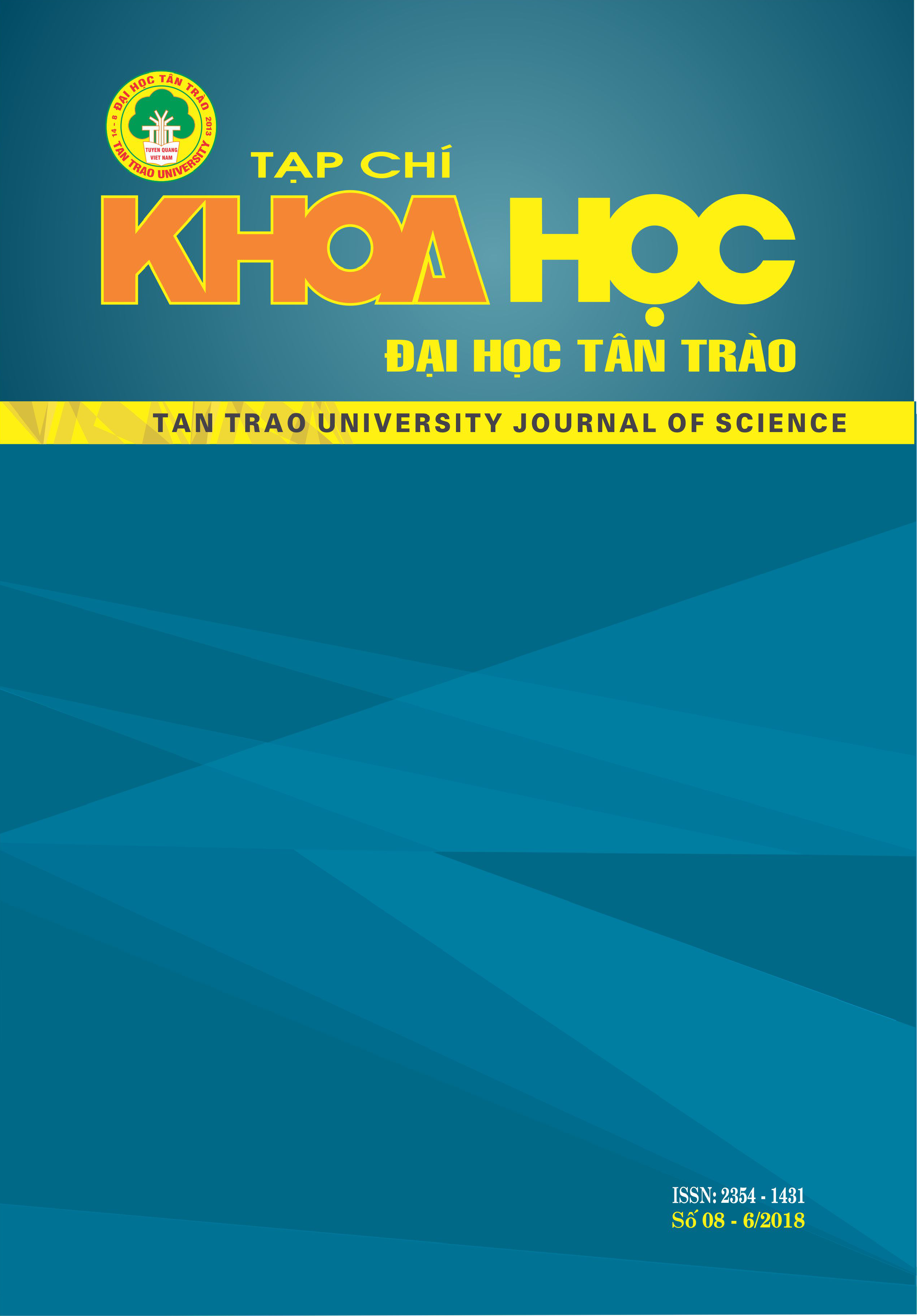The needs of ethnic minority rights in Tuyen Quang province - theory and practice
DOI:
https://doi.org/10.51453/2354-1431/2018/244Keywords:
Rights of Ethnic Minorities, Human Rights, like the permissions, the minor people at Tuyên Quang.Abstract
Tuyen Quang is highly appreciated in the field of ensuring the effective implementation of ethnic policies and the promotion of national unity. In the direction of integration, Tuyen Quang province has made remarkable effort to contributes to promoting the implementation of the 2013 Vietnamese Constitution and the current Vietnamese law as well as ensuring human rights and citizen rights in the socialist rule of law State. With the general approach of the human rights law, the need for human rights is the core and fundamental content for the beneficiary in a particular geographical area or region.. This article will clarify the specific needs of ethnic minorities in Tuyen Quang, and in order to identify the status of rights and clarifying the rationality of ensuring the rights of ethnic minorities in some populated ethnic minorities.
Downloads
References
1. Bế Thị Hồng Vân (2015), Báo cáo của Ủy ban dân tộc tại Hội thảo Liệu miền núi có cần tiến kịp miền xuôi ngày 17/10/2015, Army Hotel, Hà Nội;
2. Đỗ Mạc Ngân Doanh (2017), Quyền của người dân tộc thiểu số ở Việt Nam hiện nay, Luận án Tiến sĩ, Học viện Khoa học Xã hội, Viện hàn lâm khoa học xã hội Việt Nam;
3. Khoa Luật – ĐHQGHN (2011), Luật quốc tế về quyền của các nhóm dễ bị tổn thương, Trung tâm nghiên cứu QCN và QCD, Nxb Lao động Xã hội, Hà Nội;
4. Nghị quyết số 217C (III) của Đại hội đồng Liên hợp quốc về việc không đưa vấn đề thiểu số vào UDHR 1948;
5. Hà Văn Ngạc (2017), Giải pháp phát triển kinh tế - xã hội vùng đồng bào dân tộc thiểu số trên địa bàn tỉnh Tuyên Quang, Hội thảo lần thứ 2 của Đề tài Một số giải pháp bảo đảm QCNDTTS nhằm thúc đẩy đại đoàn kết dân tộc tỉnh Tuyên Quang;
6. Office of the United Nations High Commissioner for Human Rights (OHCHR) - United Nations, Minority Rights: International Standards and Guidance for Implementation, 2010;
7. Theo kết quả điều tra và thống kê của nhóm đề tài Một số giải pháp bảo đảm quyền của người dân tộc thiểu số nhằm thúc đẩy đại đoàn kết dân tộc tỉnh Tuyên Quang thuộc Sở Khoa học và Công nghệ thực hiện, dựa trên khảo sát 800 phiếu hỏi với người dân tộc thiểu số tại huyện Na Hang, Hàm Yên, Sơn Dương, khu tái định cư và bệnh viện tại thành phố Tuyên Quang, 2016-2017;
8. Theo kết quả điều tra và thống kê của nhóm đề tài Một số giải pháp bảo đảm quyền của người dân tộc thiểu số nhằm thúc đẩy đại đoàn kết dân tộc tỉnh Tuyên Quang thuộc Sở Khoa học và Công nghệ thực hiện, dựa trên khảo sát lại với 160 phiếu hỏi với chính các đối tượng đã được khảo sát lần 1 vào năm 2016-2017 tại huyện Na Hang, Hàm Yên, Sơn Dương, khu tái định cư và bệnh viện tại thành phố Tuyên Quang, 2018;
9. Nguyễn Kim Tường (2017), Giải pháp tổ chức thực hiện một số chương trình, chính sách dân tộc trên địa bàn tỉnh Tuyên Quang giai đoạn 2017-2020, Hội thảo lần thứ 2 của Đề tài Một số giải pháp bảo đảm QCNDTTS nhằm thúc đẩy đại đoàn kết dân tộc tỉnh Tuyên Quang.
Downloads
Published
How to Cite
Issue
Section
License

This work is licensed under a Creative Commons Attribution-ShareAlike 4.0 International License.
All articles published in SJTTU are licensed under a Creative Commons Attribution-ShareAlike 4.0 International (CC BY-SA) license. This means anyone is free to copy, transform, or redistribute articles for any lawful purpose in any medium, provided they give appropriate attribution to the original author(s) and SJTTU, link to the license, indicate if changes were made, and redistribute any derivative work under the same license.
Copyright on articles is retained by the respective author(s), without restrictions. A non-exclusive license is granted to SJTTU to publish the article and identify itself as its original publisher, along with the commercial right to include the article in a hardcopy issue for sale to libraries and individuals.
Although the conditions of the CC BY-SA license don't apply to authors (as the copyright holder of your article, you have no restrictions on your rights), by submitting to SJTTU, authors recognize the rights of readers, and must grant any third party the right to use their article to the extent provided by the license.


